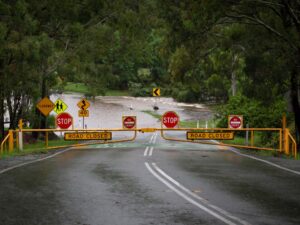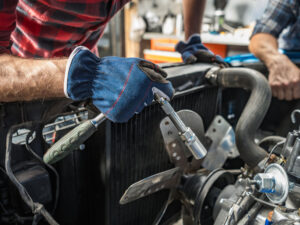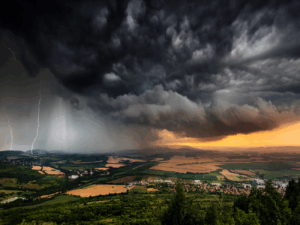January 27, 2022
By Aidan Fitzgerald, MCL marine & engineering adjuster
While it may feel as though modern technology has ‘shrunk’ the world, the ocean is still a vast and isolated space.
Ships can be thousands of kilometres from land in any direction, sometimes battling inhospitable conditions, so onboard facilities need to be able to manage any issue that might arise. All large merchant navy ships—whether oil and gas tankers or general cargo vessels—are like floating cities equipped with everything needed to create a self-sufficient living environment for weeks on end.
A glimpse into life onboard
Large ships essentially have their own power station—generating electricity up to 6,600V and with air conditioning systems very similar to those found in hotels, shopping centres and other commercial buildings. A fully stocked galley will include walk-in freezers and chillers. Other hospitality equipment includes a desalination plant for freshwater production, a sewage treatment plant, garbage facilities and onboard laboratory. This is used to check drinking water for bacteria and chlorine levels, boiler and engine cooling water for adequate chemical dosing, fuel and oil for viscosity, water content, salt content, and air quality in the breathing apparatus bottles.
There’s also a fully equipped medical centre, rescue boats and various electrical and electronic equipment, including navigation systems, radios, computers and servers, satellite receivers and radars. Each ship has lots of plant and technical instruments that you might find in most land based industrial situations, although they might not always be used in the same capacity. For example, a centrifuge used for oil purification onboard is almost exactly the same equipment used in dairy production processes to separate the cream from the milk.
Hands-on experience
As a marine engineer, being able to fix or rebuild every imaginable piece of equipment and finding practical operational solutions is what makes this field so fascinating. While onboard, you have fully equipped engineering workshops with lathes, milling machines, drilling presses, electric arc welding, gas welding and plasma cutting machines, hydraulic jacks, and presses. You also have large boilers, heat recovery systems and heat exchangers, and steam turbines for powering pumps and generating electricity. There are fuel and oil treatment systems and various hydraulic and pneumatic equipment – pumps, compressors, driers, separators, and filters – gas generation and handling plants, pumping systems, cranes and lifting gear.
Maintaining, fixing and rebuilding such a broad spectrum of machinery is particularly beneficial when discussing repairs, reinstatement options and the associated costs with customers. Doing so allows our team to advise on the best type of repair solution. Often, we can provide alternative and potentially more appropriate and cost-effective options than those proposed by the insured or their suppliers.
Commercial pressures
As plant and machinery becomes more technologically advanced, robust troubleshooting and fault-detection skills are essential. Due to commercial pressures, decisions regarding economic reinstatement methods and loss mitigation need to be made quickly to minimise downtime. When working onboard, you are often under a tremendous amount of stress to get specific motors, machinery or systems back up and running to meet tight deadlines. After all, the ship may be scheduled to leave a port at a particular time and delays are incredibly costly.
Where there is problem with a machine—whether that be on the water or on land—our marine and engineering team’s knowledge and experience in diagnosing the issue saves time and expense. Providing an initial lay summary of the situation means we can identify whether other specialists are required and advise all parties on the best way to mitigate loss. Visit our website to learn more about our major and complex loss adjusting solutions.



